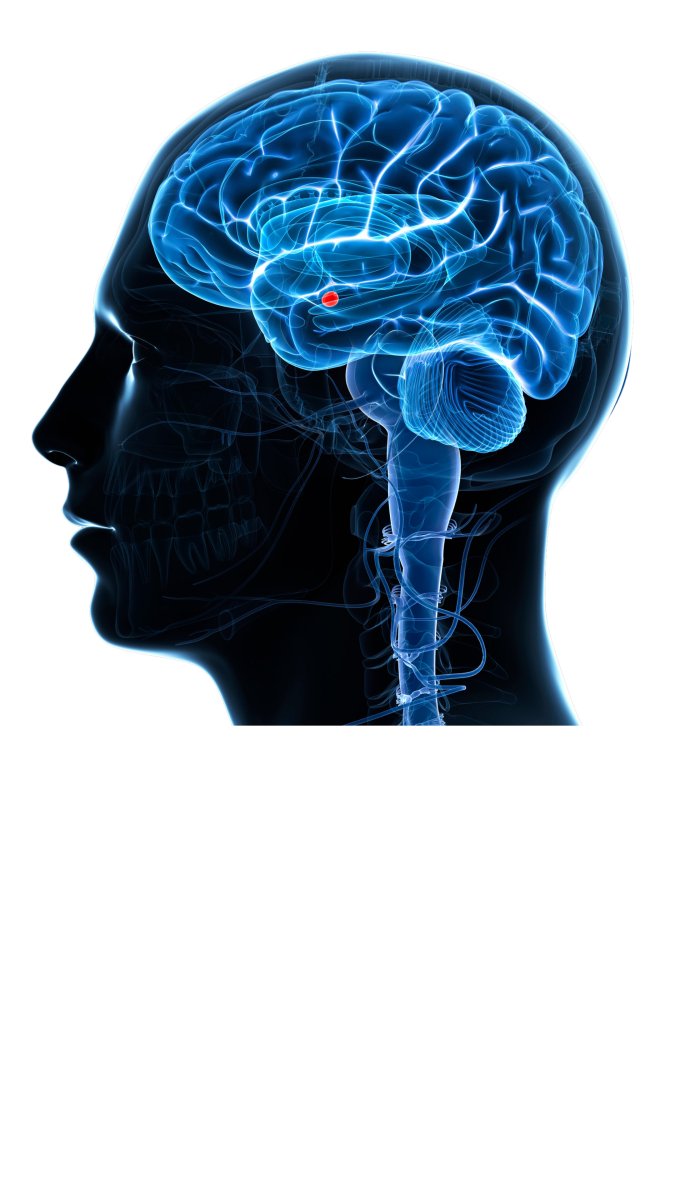Amygdala: Your Brain's Stress & Emotional Command Center
Introduction
The amygdala, a small, almond-shaped cluster of nuclei located deep within the brain's temporal lobes, plays a pivotal role in our emotional and stress responses. This remarkable structure acts as a command center, orchestrating our reactions to various stimuli, whether they evoke fear, pleasure, or social behaviour. Understanding the amygdala's function and its contributions to emotional processing provides valuable insights into human behaviour and mental health.
The Emotional Circuitry of the Brain
Neuroscientist Joseph LeDoux extensively studied the amygdala's significance in emotion processing and described the intricate emotion circuits within the brain. According to LeDoux (2000), the amygdala receives sensory information and quickly assesses its emotional relevance, allowing rapid responses to potential threats. This swift evaluation is crucial for survival, enabling individuals to react instinctively to danger.
The Role of the Amygdala in Fear and Anxiety
One of the amygdala's primary functions is the processing of fear. Sensory inputs are transmitted to the amygdala when encountering a threatening situation, triggering a cascade of physiological responses. This process, often called the "fight or flight" response, prepares the body to confront or escape the threat. LeDoux's research highlights the amygdala's ability to form emotional memories, which can influence future responses to similar stimuli.
Amygdala and Social Behavior
The amygdala extends beyond fear and anxiety and contributes significantly to social behaviour and emotional regulation. Adolphs (2009) explains that the amygdala is involved in recognizing and interpreting social signals, such as facial expressions and body language. This ability is fundamental for navigating social interactions and building relationships.
The Amygdala and Emotional Processing
Phelps and LeDoux (2005) explored the amygdala's involvement in broader aspects of emotional processing. Their research indicates that the amygdala is essential for detecting and responding to emotional stimuli and modulating the intensity of emotional experiences. This modulation is crucial for maintaining emotional balance and preventing excessive stress responses.
The Amygdala's Influence on Decision-Making
The amygdala's influence extends to decision-making processes involving risk and reward. Bechara et al. (2005) investigated the amygdala's role in the Iowa Gambling Task, a psychological task that assesses decision-making under uncertainty. Their findings support the somatic marker hypothesis, which posits that emotional signals from the amygdala guide decision-making by associating specific physiological responses with potential outcomes.
Emotional and Cognitive Interactions
The interplay between emotion and cognition is a complex and dynamic process. The amygdala integrates emotional and cognitive information with various brain regions, including the prefrontal cortex. This integration allows individuals to make informed decisions considering logical analysis and emotional impact.
Implications for Mental Health
Dysfunction in the amygdala has been linked to several mental health disorders, including anxiety, depression, and post-traumatic stress disorder (PTSD). Understanding the amygdala's role in these conditions can inform the development of therapeutic interventions aimed at restoring emotional balance and resilience.
Therapeutic Approaches
Therapies targeting the amygdala, such as exposure therapy for anxiety disorders, aim to recalibrate the brain's emotional responses. By gradually exposing individuals to feared stimuli in a controlled environment, these therapies help diminish the amygdala's overactive response and promote healthier emotional regulation.
Conclusion
The amygdala's role as the brain's stress and emotional command center underscores its importance in shaping our emotional lives. From immediate fear responses to complex social interactions and decision-making, the amygdala's influence is profound. Continued research into this fascinating brain region promises to deepen our understanding of human behaviour and improve mental health treatments, ultimately enhancing our ability to navigate the emotional landscape of life.

